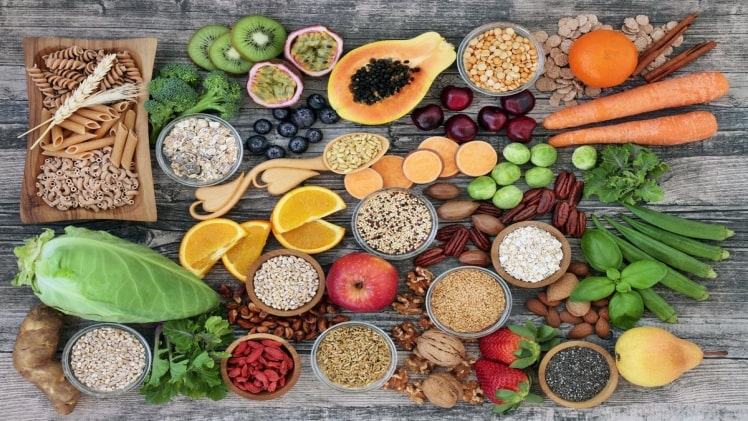Do you often find yourself questioning the difference between prebiotics and probiotics? It’s certainly understandable if the two terms confuse you, especially if you’re trying to improve your health and wellbeing.
In this guide, we’re going to break down the primary differences to help you better understand the functions and purposes of prebiotics and probiotics and how you can ensure that you’re doing what’s best for your body.
What Are Probiotics?
Probiotics are yeast and live bacteria that are found in certain foods. They help with digestion, immune function, and nutrient absorption. It’s important to note that prebiotics are substances found in plants and food that support the growth of probiotics bacteria.
Moreover, it’s common to view bacteria as bad, but there are actually good bacteria, too. Your body contains both, with probiotics being the “good” kind of bacteria. As such, you want to make sure that you’re doing all that you can to support healthy bacteria in your body. Probiotics play a major role in maintaining vaginal health in women. Many women face recurring BV issue. Probiotics help stop recurring BV.
What Are Prebiotics?
Prebiotics are plant-based substances that promote the growth of healthy bacteria in the gut. They can be found in foods like beans, whole grains, and fruit. The benefits of prebiotics come from their ability to feed the bacteria found in food and in your body.
While more studies still need to be conducted to determine whether prebiotics can be useful against conditions like IBS (Irritable Bowel Syndrome), we do know that they help regulate lesser gut issues.
So if you have constipation or abdominal pain, giving your body more prebiotics may help lessen your symptoms. Even if you’re not experiencing abdominal problems, it may be wise to make sure you’re getting plenty of prebiotics in your daily diet.
Who Is a Good Candidate for Prebiotics?
Keep in mind that the benefits of prebiotics come from their ability to feed the bacteria. Therefore, prebiotics may be a good choice for those with gut dysregulation as a result of food sensitivities, like gluten intolerance, chronic intestinal inflammation, and constipation.
Pregnant women can also benefit from prebiotics, as they help with digestion and nutrient absorption. As always, though, you should speak with your doctor first before making any radical changes to your diet.
There are many ways to get prebiotics into your system, with the most common being food. Admittedly, though, not all of the foods that contain prebiotics are necessarily appealing.
So if you have been looking for alternative sources of prebiotics and you can’t imagine eating unappetizing foods like garlic or high-fiber cereal, consider vina instead. This delicious soda is made with prebiotics and contains minimal sugars (5 grams or less).
What’s more, it’s exponentially healthier than traditional sodas. So if you want to get away from traditional soda but just don’t have the willpower to do so, this prebiotic soda is just for you. Now, you don’t have to give up sodas.
You can continue enjoying it with meals or any time you like without fear of consuming a bunch of unhealthy sugars and additives. Plus, it’s safe to drink while you’re pregnant.
Not only that but the healthy soda is formulated to keep your brain function sharper throughout the day so you can focus on what’s important. And with 5 delicious flavors, you can satisfy your soda cravings without the guilt.
What Are the Benefits of Taking Prebiotics?
There are many potential health benefits of prebiotics, including the following:
Gut Health: Prebiotics can help to promote healthy digestion. They feed the bacteria that live in your gut, which helps to improve the growth of these bacteria.
Improved Immune Function: The gut’s microbiome affects the immune system, so getting prebiotics could have some positive effects on your immune response.
Weight Loss: Research has shown that some types of prebiotics are able to lower body weight in obese patients. However, this is not always the case, and more research needs to be done before researchers know for sure if this is possible.
Cholesterol Levels: Studies show that people who took a prebiotic lowered their LDL cholesterol.
With so many benefits, it’s worth checking with your medical provider to see if you’re a good candidate for prebiotics.
Conclusion
Thanks to their beneficial effects on gut bacteria, prebiotics are becoming increasingly popular. However, it’s important to first check with your doctor to ensure that your body needs prebiotics. In some cases, taking prebiotics can make your symptoms worse if you’re suffering from certain medical conditions.
For the average person, though, getting prebiotics to support good probiotics will serve you well. You’ll notice improved digestive function and better overall wellbeing.

